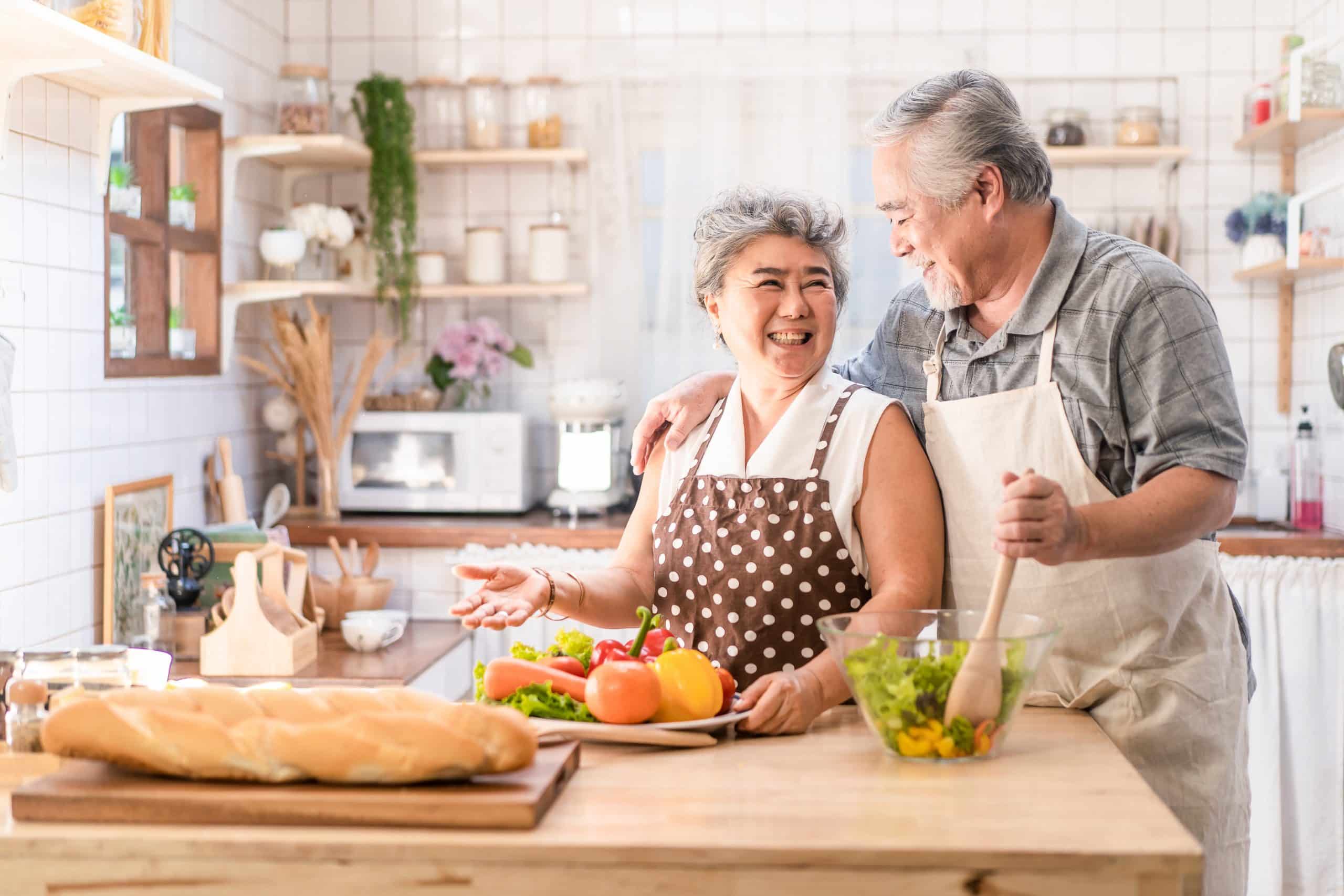As more and more older adults choose to “age in place” in their homes, more and more options are becoming available to help them do just that.
Physical, emotional, and mental health are all directly linked to the quality of one’s housing. In the majority of cases, it’s far more beneficial for a person to be able to live independently in their family home. The memories, the familiarity, and the comfort that can only come from living at home provide invaluable support as people grow older and face an assortment of health-related issues.
That’s why it’s so very important for homes to be outfitted with as many safety features as possible. We’ve compiled a list of essential tips for home safety for seniors. Take this list and do a thorough inspection of your home and talk it over with your loved ones. These are all things you can do — maybe with a little help — to enhance safety in the home.
Fall Prevention
Falls in the home — and the often serious injuries that accompany them — are the number-one risk in a person’s house. Between slippery floors, loose rugs, and scurrying pets underfoot, the odds of taking a serious spill increase greatly for older adults.
Here are a few key steps you can take to help prevent falls in the home:
Make Surfaces Slip Proof
Bathrooms and kitchens with tile floors can be extremely dangerous when wet. And bathrooms get wet a lot. Fortunately, you have multiple options for preventing slips and falls in your home. Consider installing non-slip linoleum, rubber mats, or non-slip adhesive tape to floors or showers.
Add Grab Bars
Grab bars are relatively inexpensive and simple to install and can be a great addition in bathrooms, showers, or other areas where support is needed.
Install Ramps and Stairlifts
Stairs, door thresholds, and other uneven surfaces are frequent tripping hazards. Thankfully, you can find a wide assortment of ramps or stairlifts to make navigating up and down much safer.
Clean Up the Clutter
It’s vital to keep floors, stairs, and chairs free from messes or anything that could cause someone to trip and fall. A tidy home is a safer home.
Have a Plan for Emergencies
Even the most prepared homeowners can experience accidents, so be sure to plan ahead in case of emergencies. Place easy-to-find contact information in the kitchen, main bathroom, bedroom(s), or other commonly used areas of the home. The most important numbers include those of family members or friends who are willing to help, medical professionals, and poison control.
Get Some Exercise
Falls can also be reduced by keeping ourselves healthy. Even simple acts such as stepping over a tub wall or sitting and standing from the toilet are safer with a bit of extra leg and core strength. A few mild squats or lunges each day can build up one’s strength significantly over time. There are also lots of seated exercises that can be part of your weekly routine.
Make “Smart” Upgrades
These days, numerous electronic devices make home living easier AND safer. While most of these tools and devices have some cost involved, their value in creating a safer home cannot be overstated. Here are a few recommendations:
Medical Alert Devices
These wearable devices are literal lifesavers. In just about any emergency — from slips and falls to serious medical conditions — these devices instantly alert local healthcare facilities and/or municipal authorities to your need for immediate assistance.
Automatic Switches and Faucets
You’ve likely seen them in commercial or office settings, and now automatic light switches and faucets are available for your home. A simple wave of the hand, voice command, or motion detector will make essential functions like lighting your home and getting water as easy and safe as possible.
Smart Devices and Appliances
“Smart” televisions, kitchen appliances, and other on-command devices remove barriers from daily living. In addition, numerous apps can be installed on one’s mobile device that provide countless benefits for a safer home.
GPS Trackers
Any person experiencing confusion or memory loss should be able to remain safe in their home. If they ever wander or get lost, GPS trackers can help locate your loved ones or emergency personnel find them quickly.
Additional Tips for Home Safety for Seniors
As you safety-proof your home, keep in mind these important steps, as well.
- Hire a professional to do a thorough safety inspection of your home. You may be surprised at how many aspects of your home can pose a safety risk.
- Make sure the water heater is set to below 120° F (49° C) to avoid scalding.
- Replace old appliances or electronic devices that have been damaged or have cords that are frayed or worn.
- Keep portable heaters away from things that are flammable, including fabrics.
- Never use a propane stove or grill inside the home.
- Install carbon monoxide and smoke detectors throughout the home.
- Keep medications well organized and clearly labeled. Ask pharmacists to apply large-print labels to prescriptions.
- Sadly, there are people in the community attempting to scam or take advantage of others. Take extra measures to make your home and information secure. Never give out personal information to strangers who contact you, even if they sound legitimate. Any important financial or legal decisions can wait until you’ve had a chance to talk them over with family members, friends, or trusted professionals.
Turn to Havenside for Help
If you have questions about home safety for seniors, you can call your friends at Havenside. We exist to help people age in place in their homes safely so they can maintain their independence, dignity, and mobility.

